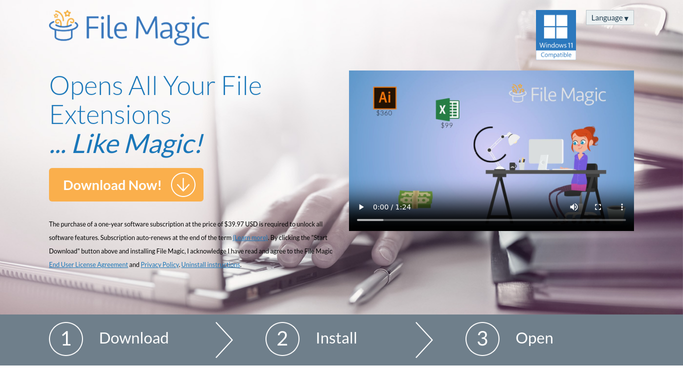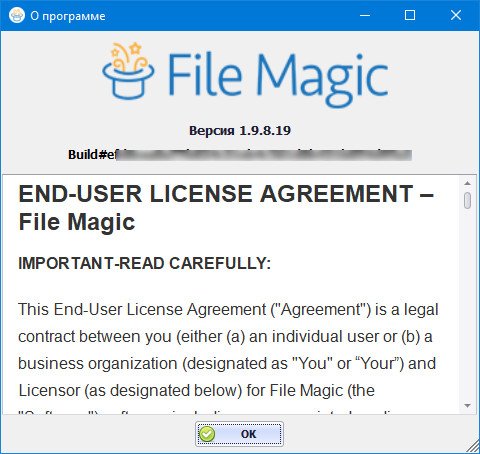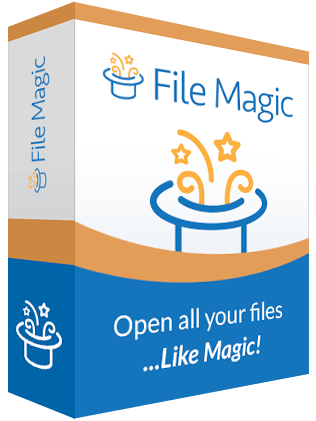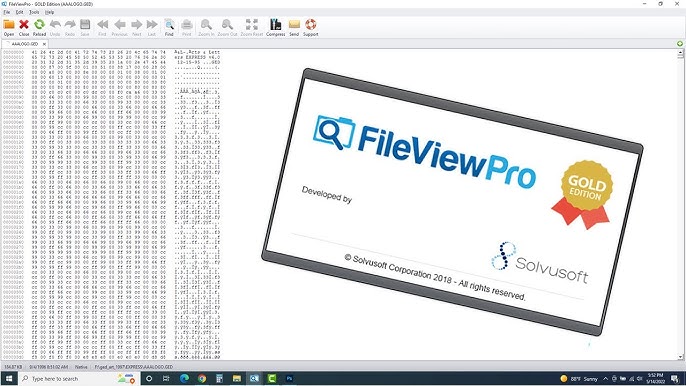FileMagic is a powerful and versatile file management solution that supports a wide range of file formats, including WAR files. A WAR file, short for Web Application Archive, is a type of compressed archive used in Java-based web development. It contains all the components necessary to deploy a web application on a Java servlet container such as Apache Tomcat, GlassFish, or Jetty. These components often include HTML files, JSP (JavaServer Pages), servlets, class files, libraries, and configuration files like the `web.xml`. While WAR files are a convenient way to package and distribute web applications, they can be challenging to work with outside of development environments, especially for users who do not have access to dedicated tools for web application deployment. FileMagic eliminates these challenges by allowing users to open, explore, and extract WAR files with ease, making web application management more accessible.
When users encounter a WAR file, they may need to inspect its contents to troubleshoot issues, modify configurations, or analyze the application structure. FileMagic simplifies this process by providing seamless access to the internal structure of WAR files. The software automatically detects the archive format and presents a detailed breakdown of its contents. Users can view all files and directories within the WAR archive, including important components such as the `WEB-INF` and `META-INF` directories. This organized view makes it easy to locate specific files, such as configuration scripts or libraries, without requiring advanced knowledge of Java development or web servers.
One of the key benefits of FileMagic is its powerful file previewing capabilities. Instead of extracting the entire WAR archive to access a single file, users can open and preview individual files directly within the software. This feature is particularly useful for inspecting configuration files like `web.xml`, which defines the deployment settings of a web application. By allowing users to view and verify file contents before extraction, FileMagic streamlines the troubleshooting and modification process. Developers and administrators can quickly check for errors, review class paths, or examine security policies without the need to deploy the entire application to a server.
In many cases, WAR files are used to distribute applications between development, testing, and production environments. These files often contain a combination of static and dynamic resources, including images, CSS files, JavaScript, and compiled Java code. FileMagic ensures that all these components are preserved and accurately displayed during extraction. This is particularly important for developers who need to extract specific resources or make modifications to assets without breaking the overall application structure. With FileMagic, users can easily extract and edit individual files, then repackage the modified WAR archive for redeployment.
FileMagic also provides cross-platform support, making it easier for users to work with WAR files on various operating systems. While Java applications are designed to be platform-independent, many developers and administrators work across different environments such as Windows, macOS, and Linux. FileMagic ensures that users can access and manage WAR files on any of these platforms, eliminating the need to switch between different tools or environments. This cross-platform compatibility is essential for teams that collaborate on web applications and need a consistent file management solution.
For users who handle large or complex web applications, FileMagic includes advanced search and filtering capabilities. WAR files can contain hundreds or even thousands of files spread across multiple directories, making it difficult to locate specific resources manually. With FileMagic, users can perform keyword-based searches to quickly find files within the archive. The software also supports filtering by attributes such as file type, size, or modification date, helping users narrow down their search results. These features save time and improve efficiency, especially when managing extensive application packages.
Security is a critical concern for users working with WAR files, particularly when deploying web applications that handle sensitive data. WAR archives may contain configuration settings for security policies, user authentication, and access control. FileMagic helps users maintain the security of their applications by providing encrypted file handling and secure access features. Users can inspect and modify security-related files, such as `web.xml`, to ensure that their applications adhere to best practices for data protection. Additionally, FileMagic allows users to set permissions and control access to their extracted files, preventing unauthorized users from tampering with sensitive application components.
In addition to its core features, FileMagic offers integration with other productivity tools and services. Users can configure the software to automatically extract WAR files to designated directories or synchronize extracted data with cloud storage platforms such as Google Drive, Dropbox, or OneDrive. This integration enhances collaboration by allowing team members to access and share application resources across multiple devices and locations. For example, a developer can extract a WAR file on their desktop, sync the data to a cloud service, and collaborate with other developers who are working remotely.
FileMagic also supports offline functionality, giving users full control over their files without requiring an internet connection. This is particularly beneficial for users who work in secure environments or remote locations with limited connectivity. By enabling offline access, FileMagic ensures that users can continue managing their WAR files and other archives without interruptions, maintaining productivity regardless of network availability. This feature is especially valuable for IT administrators who may need to troubleshoot or deploy applications in restricted environments.
To keep pace with evolving technology, FileMagic is continuously updated with new features, performance improvements, and expanded support for additional file formats. The development team actively listens to user feedback and implements enhancements to ensure that the software remains a reliable and effective solution for managing complex archives. These updates help FileMagic stay compatible with the latest web development practices and server technologies, providing users with the tools they need to handle modern web applications.
For organizations that manage multiple web applications, FileMagic’s organizational features provide additional benefits. Users can categorize and tag extracted files, create custom annotations, and organize their data into structured directories. This helps users maintain a well-organized file system, making it easier to track changes, version updates, and deployment schedules. By providing a centralized platform for file organization, FileMagic enhances productivity and collaboration within development teams.
In conclusion, FileMagic is an essential tool for users who need to manage WAR files and other archive formats. Its intuitive interface, robust extraction capabilities, and advanced security features make it easy to access, modify, and organize data from complex web application packages. Whether you are a developer, system administrator, or IT professional, FileMagic provides a comprehensive platform to meet your file management needs. By supporting WAR files alongside many other formats, FileMagic empowers users to handle their applications with confidence and efficiency. With FileMagic, accessing and managing WAR files has never been simpler.
 One of FileMagic’s key advantages is its ability to provide full access to the contents of WAR files in an intuitive and user-friendly interface. When a user opens a WAR file in FileMagic, the software presents a detailed view of the archive’s directory structure. This includes folders such as “WEB-INF,” where essential configuration files like `web.xml` are located, as well as other resources such as static content and Java class files. By organizing these components clearly, FileMagic helps users quickly understand the architecture of the web application, making it easier to identify key files for inspection or modification. Developers, system administrators, and testers can use this feature to troubleshoot issues, analyze application structures, or verify deployment packages without requiring a running server.
One of FileMagic’s key advantages is its ability to provide full access to the contents of WAR files in an intuitive and user-friendly interface. When a user opens a WAR file in FileMagic, the software presents a detailed view of the archive’s directory structure. This includes folders such as “WEB-INF,” where essential configuration files like `web.xml` are located, as well as other resources such as static content and Java class files. By organizing these components clearly, FileMagic helps users quickly understand the architecture of the web application, making it easier to identify key files for inspection or modification. Developers, system administrators, and testers can use this feature to troubleshoot issues, analyze application structures, or verify deployment packages without requiring a running server. In conclusion, FileMagic is an essential tool for anyone who needs to work with HPK files or other archive formats. Its intuitive interface, powerful extraction and previewing features, and comprehensive security measures make it easy to access and manage data from proprietary archives. Whether you are a game developer, digital archivist, or IT professional, FileMagic provides a reliable and efficient platform to meet your file management needs. By supporting HPK files alongside a wide range of other formats, FileMagic empowers users to handle their files with confidence and ease. With FileMagic, managing and extracting data from HPK files has never been more straightforward.
In conclusion, FileMagic is an essential tool for anyone who needs to work with HPK files or other archive formats. Its intuitive interface, powerful extraction and previewing features, and comprehensive security measures make it easy to access and manage data from proprietary archives. Whether you are a game developer, digital archivist, or IT professional, FileMagic provides a reliable and efficient platform to meet your file management needs. By supporting HPK files alongside a wide range of other formats, FileMagic empowers users to handle their files with confidence and ease. With FileMagic, managing and extracting data from HPK files has never been more straightforward. FileMagic offers users a seamless way to access WAR files without needing specialized developer tools. For developers, system administrators, or users who are unfamiliar with command-line utilities, FileMagic provides an intuitive interface that makes it easy to work with these archives. Once a WAR file is opened in FileMagic, users can see a detailed breakdown of its contents, including directories and files such as Java class files, resources, and configuration settings. This comprehensive view allows users to understand the structure of the web application, making it easier to locate specific components such as XML configuration files, images, or static resources.
FileMagic offers users a seamless way to access WAR files without needing specialized developer tools. For developers, system administrators, or users who are unfamiliar with command-line utilities, FileMagic provides an intuitive interface that makes it easy to work with these archives. Once a WAR file is opened in FileMagic, users can see a detailed breakdown of its contents, including directories and files such as Java class files, resources, and configuration settings. This comprehensive view allows users to understand the structure of the web application, making it easier to locate specific components such as XML configuration files, images, or static resources. This ability to preview audio files without launching a separate DAW speeds up workflow and improves productivity, making FileViewPro a must-have tool for any audio professional. Metadata support is another important feature of FileViewPro when working with AIF files. Many AIF files contain embedded metadata, including track titles, artist names, album information, and copyright details. This metadata is essential for organizing large music collections, ensuring proper file labeling, and maintaining accurate records of recordings.
This ability to preview audio files without launching a separate DAW speeds up workflow and improves productivity, making FileViewPro a must-have tool for any audio professional. Metadata support is another important feature of FileViewPro when working with AIF files. Many AIF files contain embedded metadata, including track titles, artist names, album information, and copyright details. This metadata is essential for organizing large music collections, ensuring proper file labeling, and maintaining accurate records of recordings.